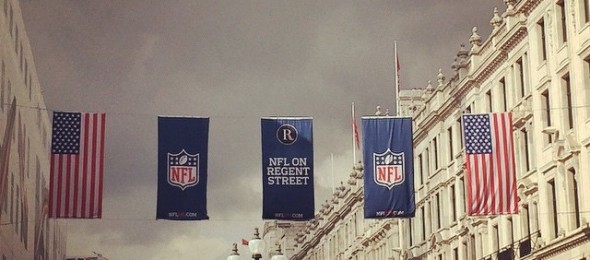Michael Z. Green, Professor of Law at Texas A&M University School of Law, and Kyle Carney, Independent, have published, “Can NFL Players Obtain Judicial Review of Arbitration Decisions on the Merits When a Typical Hourly Union Worker Cannot Obtain This Unusual Court Access?,” New York University Journal of Legislation and Public Policy, Forthcoming. In their journal article, the authors discuss recent court challenges to labor arbitration rulings made on behalf of National Football League athletes.
Here is the abstract:
Several recent court cases, brought on behalf of National Football League (NFL) players by their union, the NFL Players Association, have increased media and public attention to challenges of labor arbitrator decisions in federal courts. The Supreme Court has established a body of federal common law that places a high premium on deferring to labor arbitrator decisions and counseling against judges deciding the merits of disputes covered by a collective bargaining agreement. A recent trend suggests federal judges have ignored this body of law and analyzed the merits of labor arbitration decisions in the NFL setting.
NFL employees, as millionaires, are able to use a significant war chest, given to their union, to hire very prominent attorneys to argue their cases in the federal courts after the union has lost the dispute in final and binding arbitration. Unlike a typical hourly union worker, who has very limited legal options after an arbitration award has been rendered, millionaire professional football players and their union appear to be successfully challenging labor arbitrator decisions on the merits in federal district courts. Their prominent attorneys, from major corporate law firms that tend to represent employers in workplace disputes, appear to add value in resources and skills on behalf of their rich, professional football employee clients. Do these rich financial and attorney resources suggest an unusual access to judges who may be more willing to hear their novel legal arguments outside of the typical standards laid down by the Supreme Court’s federal arbitration jurisprudence?
This Article explores the recent access to court that NFL players have been able to obtain in challenging decisions made pursuant to a collective bargaining agreement. The Article argues that the financial resources of these unique union employees has led to the unusual access and consideration by federal trial judges in reviewing the merits of decisions that typically would not be considered under federal labor arbitration law. However, overall the record also suggests that the immediate appellate courts have responded to overturn this unusual consideration of the merits of labor arbitration decisions by reversing those initial court opinions. This Article concludes that because of the strong public interest in labor arbitration decisions involving the NFLPA, the federal courts must normally defer to the arbitrator’s decision regardless of the merits. Otherwise, a typical union worker challenging a labor arbitrator’s decision will be left with the wrong perception about access to justice and believe you have to be rich to get a federal judge to hear your labor dispute.
This and other scholarly articles written by Professor Green are available for viewing through the Social Science Research Network.
Photo credit: Saltank via Foter.com / CC BY-SA














